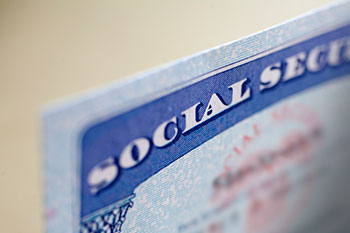Social Security Benefits
Many people are unaware that Social Security can help provide a safety net to widows, widowers, (divorced widows and widowers), children and dependent parents, if the wage earner has worked and paid into Social Security. In addition, there is a special one- time payment of $255 that can be made to a surviving spouse or eligible children.
We provide the information below as a general explanation of the benefits that are available. As each situation can be different, specific information is available directly from the Social Security Administration by visiting www.ssa.gov.
 How do I apply for these benefits?
How do I apply for these benefits?
You can call 1-800-772-1213 to schedule an appointment, or contact your local Social Security office.
What information will I need to have available?
Some items we may need to see include:
• Your Social Security number, as well as your spouse’s number.
• Your birth certificate (an original, or a certified copy).
• Your marriage certificate.
• Your divorce decree if you are a surviving divorced widow.
• Dependent children’s Social Security numbers, if available.
• Deceased spouse’s W-2 form, (or self employ- ment tax schedule) for the most recent year.
• The name of your bank and your account number for direct deposit of your monthly benefit check.
How much will I receive?
The amount of your monthly payment will be based upon the earnings of the worker who died. The more that was paid into Social Security, the higher the monthly benefit amount. Another factor is your age.
• The age to receive full benefits is gradually increasing to age 67 for widows and widowers born in 1940 or after.
• A widow or widower who is age 65 or older will receive 100% if born before 1940.
• A widow or widower age 60-64 receives about 71–94%.
• A widow with a child under age 16 receives up to 75%.
• Children receive up to 75% of the worker’s basic Social Security benefit.
• Under certain circumstances, benefits can be paid to step children, grand children and adopted children.
Work and remarriage can also affect the amount of your monthly payment.
• If divorced, your former wife of husband who is age 60 or older (50–60 if disabled) can get benefits if your marriage lasted at least 10 years.
• Your former spouse does not need to meet the age or length of marriage rule is she or he takes care of your child who is entitled to a child’s benefit and is age 16 or younger or is caring for a child who became disabled pror to age 22.
For more information, please contact your local Social Security office.
Social Security Administration, 3165 Williams Blvd SW Cedar Rapids, Iowa 52404, (319) 393-0045